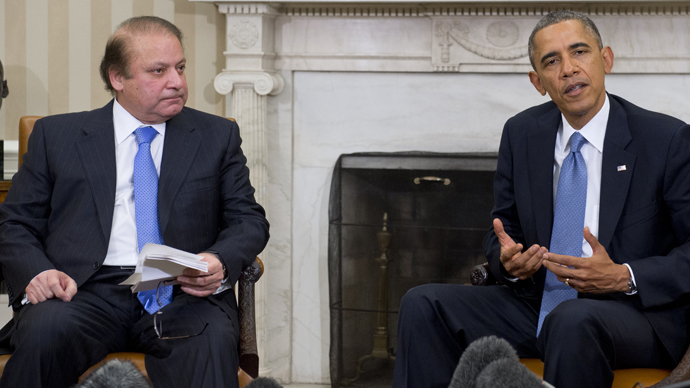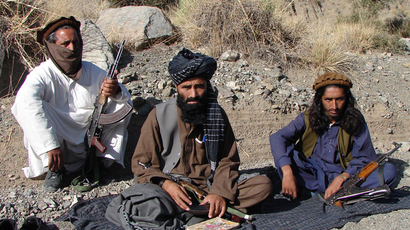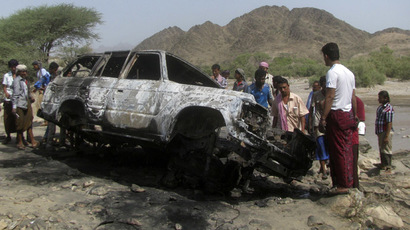Pakistani PM demands end to drone strikes as he meets Obama

Pakistan’s PM Nawaz Sharif, in a meeting at the White House, urged US President Obama to end American drone strikes in Pakistan. The strikes, which target terror suspects but have also killed innocent civilians, has angered the Pakistani population.
Pakistani officials have long complained that US drone strikes
violate the nation’s sovereignty, with civilians living in
constant fear of the unmanned aerial devices buzzing in the sky
overheard. Sharif has been one of the foremost anti-drone leaders
in Pakistan since he took office earlier this year. He recently
told the United Nations General Assembly that the interference
undercuts Pakistan’s “resolve and efforts to eliminate
extremism and terrorism from Pakistan.”
Tuesday, on the eve of his visit to Washington, Sharif said the
strikes have “deeply disturbed and agitated” the Pakistani
people.
“The use of drones is not only a violation of our territorial
integrity but they are also detrimental to our efforts to
eliminate terrorism from our country,” he went on, adding
that the issue has become a “major irritant” in
Pakistani/US relations.
How seriously Washington will take Sharif’s request remains to be
seen. Along with Yemen, Pakistan has become a hotbed of US drone
activity in recent years. The number of innocent civilians killed
is estimated to be in the thousands, but official figures are not
released publicly.
“We want to find ways for our countries to cooperate, even as
we have differences on some issues, and we want to make sure that
the trajectory of this relationship is a positive one,” White
House spokesman Jay Carney said.
Publicly the relationship between the US and Pakistan has been
strained since a small team of US special forces crossed the
Pakistan border and killed Al-Qaeda terrorist leader Osama bin
Laden. Pakistani soldiers stationed on the border opened fire on
US troops.
The drone strikes have traditionally targeted the hostile
mountainous region of Pakistan, where the remaining Al-Qaeda
leadership is thought to have taken refuge. Whether the Pakistani
government has any influence in the area is unclear, and Admiral
Michael Mullen – the top American military officer at the time of
the bin Laden raid – said Pakistan’s intelligence agency is a
“veritable arm” of the Haqqani militant network, which is known
to be one of the groups attacking US troops in Afghanistan.
“I feel this is a temporary feel-good moment,” Farahnaz
Ispahani, former adviser to former Pakistani president Asif
Zardari, told USA Today of Wednesday’s meeting. “This moment,
like a lot of moments of past years, will unfortunately not bear
long-term fruit.”














